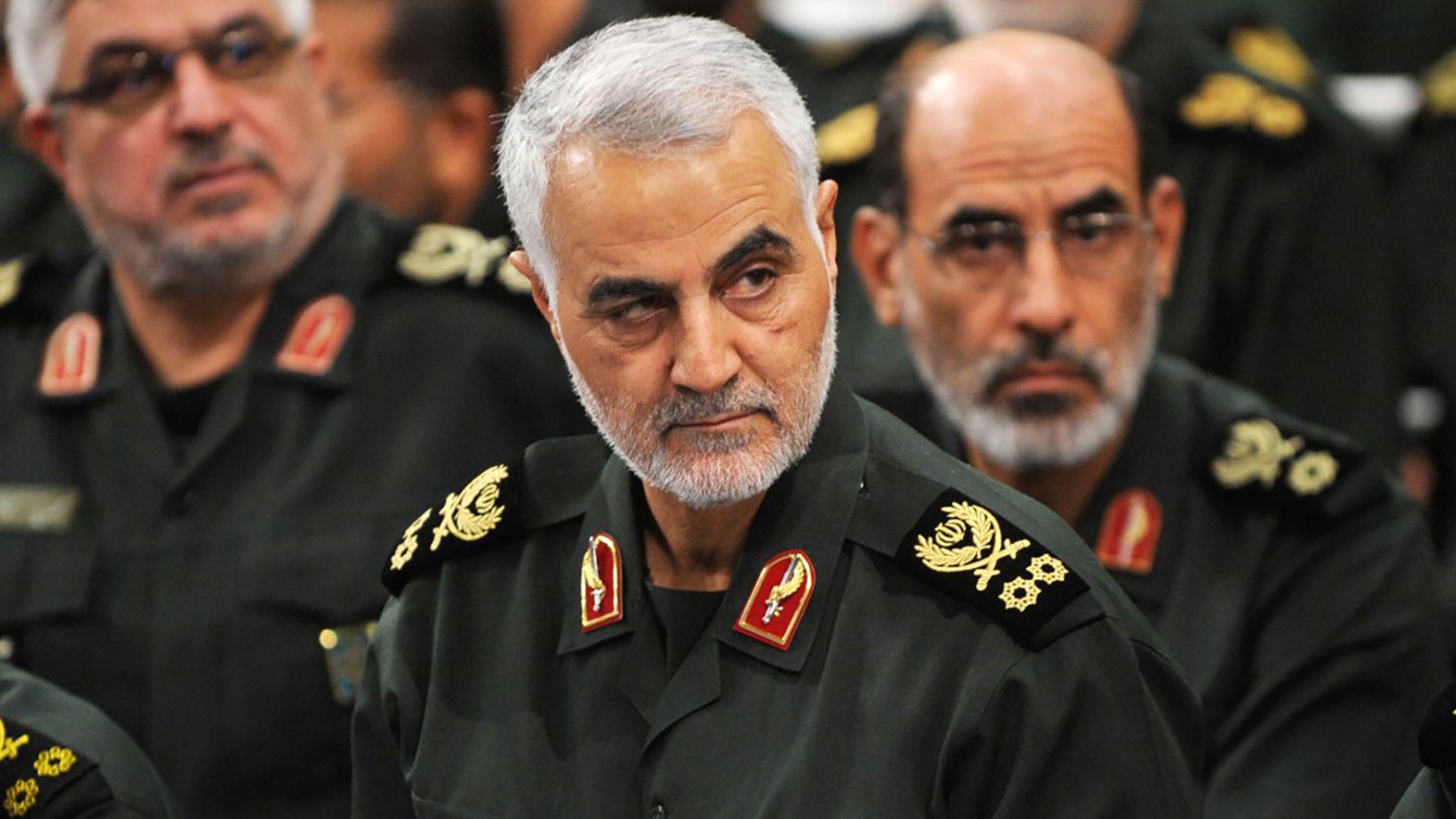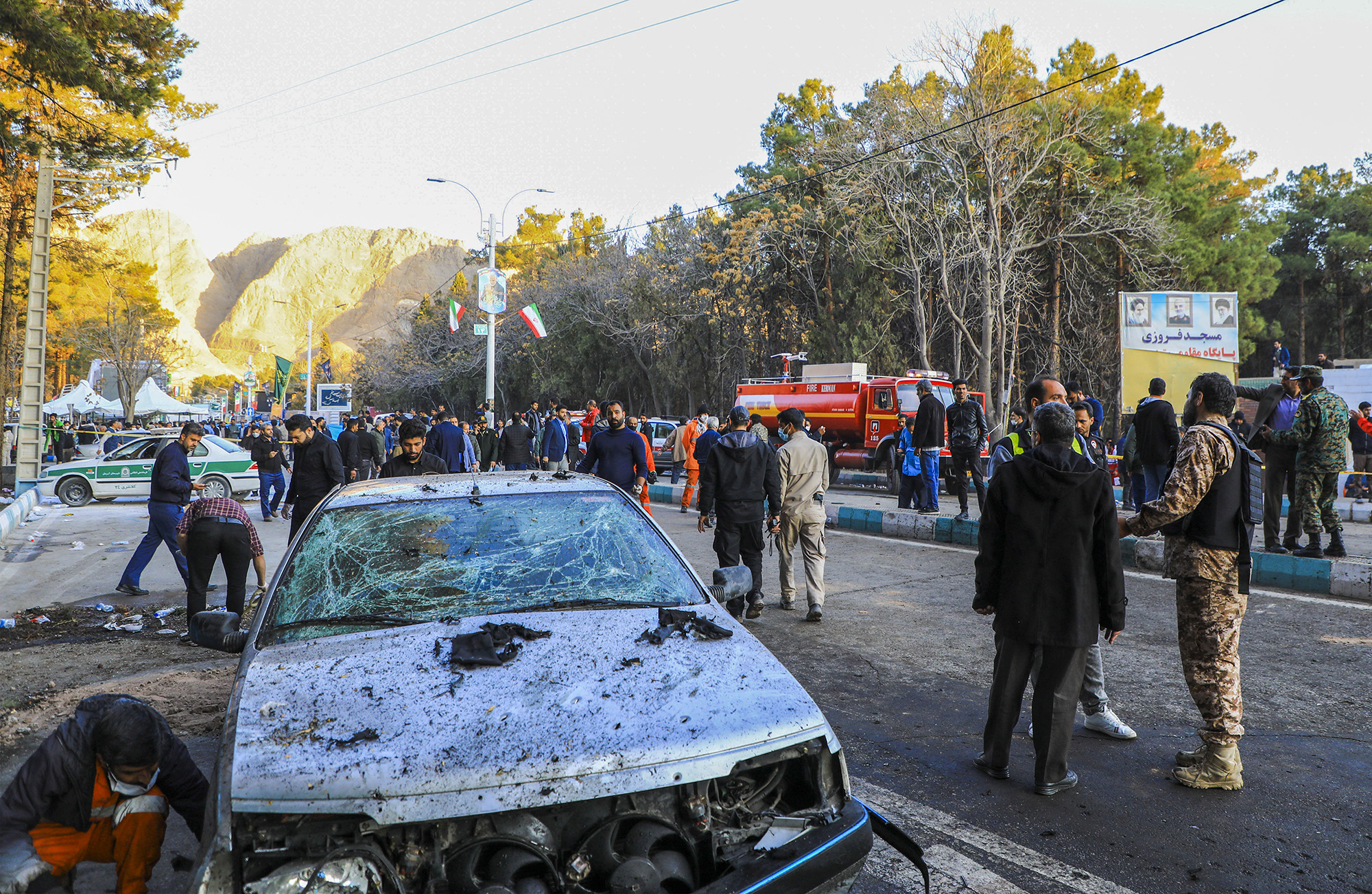At Least 100 People Killed In Blasts At A Ceremony Honoring Slain Iran Commander
At least 100 people killed in blasts at a ceremony honoring slain Iran commander. The terror attack occurred in the Iranian city of Kerman resulting in at least 100 people killed and 188 injured on Wednesday.
Author:Hajra ShannonReviewer:Paula M. GrahamJan 04, 20241.2K Shares102.2K Views

At least 100 people killed in blasts at a ceremony honoring slain Iran commander. The terror attack occurred in the Iranian city of Kerman resulting in at least 100 people killed and 188 injured on Wednesday. The twin blasts occurred near the burial site of the slain military commander, Qasem Soleimani. According to state TV, a bomb was responsible for at least one of the explosions.
As pilgrims visited the site, a second explosion occurred 0.6 miles (1 kilometer) away from the first blast, which was about 2,300 feet (700 meters) from Soleimani's grave. On the fourth anniversary of Soleimani's passing in a U.S. airstrike at Baghdad International Airport, former President Donald Trump ordered the attacks.
Iran's Interior Minister Ahmad Vahidi stated that the first explosion, near Soleimani's grave, was caused by a bomb placed in a suitcase inside a Peugeot 405 car and seemed to be detonated remotely. The second, more lethal blast occurred 20 minutes later as other pilgrims arrived to assist the injured.
Videos shared on Iranian state media depicted large crowds fleeing the area after the explosion. Additional footage showed bloodied bodies being carried away from the scene, with ambulances navigating through dense crowds.
Although no group has claimed responsibility for the blasts, Iran's President Ebrahim Raisi pointed the finger at Israel, holding it accountable for the explosions. In a televised speech from Tehran, Raisi declared, "I warn the Zionist regime, do not doubt that you will pay a heavy price for this crime and the crimes you have committed." As the head of the Iranian government, Raisi cautioned that Israel's punishment would be "regrettable and severe."
The Israeli military provided "no comment" when questioned about the matter. However, analysts and a U.S. official speculated that the blast bore the hallmarks of a terrorist attack.
“„I think it's just based on the MO it does look like a terrorist attack, the type of thing we've seen ISIS do in the past. And as far as we're aware, that's kind of I think our going assumption at the moment.- The official
During a press briefing, U.S. State Department spokesperson Matt Miller stated that the U.S. lacks "any independent information" about the explosions and emphasized that there is "no reason to believe that Israel was involved."
Iran's Supreme Leader Ayatollah Ali Khamenei issued a warning on a social media platform, stating that Iran would deliver a "harsh response." Addressing those responsible for the explosions, he asserted, "They should know that the bright soldiers of the path of Soleimani will not tolerate their wickedness and crimes."
In response to the blasts, Iran declared Thursday as a day of mourning, and President Raisi canceled his planned trip to Turkey.
Formerly one of Iran’s most influential figures, Soleimani headed the Revolutionary Guards’ Quds Force, an elite unit responsible for Iran’s overseas operations and designated a foreign terrorist organization by the U.S.
According to the Pentagon, Soleimani and his forces were "responsible for the deaths of hundreds of American and coalition service members, and the wounding of thousands more." Referred to as Iran’s “shadow commander,” Soleimani, who had led the Quds Force since 1998, served as the architect behind Iranian military operations in Iraq and Syria.
General Ismail Qaani, Soleimani’s longstanding lieutenant and his successor as the head of the Quds Force, described the perpetrators as "desperate" and issued a warning, stating that "the Islamic Republic will not alter the method of eradicating the Zionist regime."
Blast Comes At Tense Moment In Region
The explosion occurred amid heightened tensions in the region as Israel engages in a three-month war against Hamas in Gaza, sparked by the militant group’s October 7 attack on Israel.
The ongoing conflict has resulted in over 23,000 casualties in Gaza, according to the Hamas-run Ministry of Health in the enclave, and has led to skirmishes extending beyond Israel and Gaza, often involving Iran-backed militias.
On Tuesday, a senior Hamas leader was killed in a suburb of Beirut in a blast that a U.S. official stated was carried out by Israel. Israel has neither confirmed nor denied involvement, but both Hamas and the militant group Hezbollah, which controls the suburb, attributed the incident to Israel and pledged retaliation.
Last week, accusations surfaced, with Iran and its armed proxies alleging that Israel assassinated a senior Iranian commander in Syria, and they vowed retaliation. Israel did not comment on the matter.
Hezbollah leader Hassan Nasrallah, in an address marking the anniversary of Soleimani’s death, stated that the killing of the Hamas official in Beirut "won't go unpunished."
Israel accuses Tehran of funding and arming Hamas. Israeli Defense Minister Yoav Gallant mentioned last month that his country is engaged in a "multi-arena war," facing attacks from seven arenas, including Iran. He asserted, "We have already responded and acted in six of these decrees."
Following the blasts on Wednesday, Russian President Putin condemned "terrorism in all its forms" in a letter to Iran’s Supreme Leader Ayatollah Ali Khamenei and President Ebrahim Raisi. Putin, currently the subject of an arrest warrant from the International Criminal Court, has faced accusations from Kyiv and international bodies for numerous acts of terror during his war in Ukraine.
Both the European Union and United Nations Chief Antonio Guterres condemned Wednesday’s blasts and called for the perpetrators to be held responsible.
The United States has increased its military involvement in the Middle East recently. Last month, the military conducted airstrikes on Iranian-backed Kataib Hezbollah and "affiliated groups" in Iraq after an attack injured three US troops.
Additionally, last week, US helicopters sank three boats belonging to Iran-backed Houthi rebels in the Red Sea after coming under fire, resulting in casualties. This marked the first time since tensions erupted earlier last year that the US killed members of the rebel group.
The White House stated it wasn't seeking a broader conflict. The Houthis have carried out several attacks on merchant vessels in the Red Sea in retaliation for Israel’s assault on Hamas, disrupting trade in one of the world’s most important waterways.

Hajra Shannon
Author

Paula M. Graham
Reviewer
Latest Articles
Popular Articles
